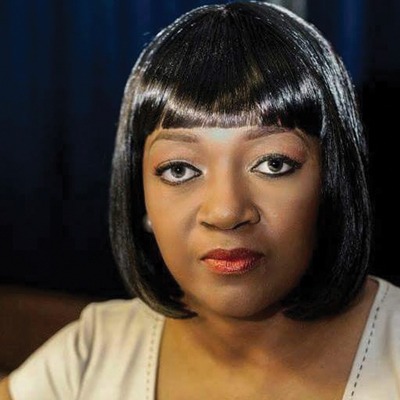
Opinion Pearl Matibe
A FOUR-DAY colossal US-Africa foreign direct investment business summit involving 13 African Heads of State, more than 1 000 United States and African private sector executives, international investors, senior government officials and multilateral stakeholders, begins at the Joaquim Chissano International Conference Centre in Maputo, Mozambique, next week.
Corporate Council on Africa (CCA) and the Government of Mozambique (GoM) will host the summit themed Advancing a Resilient and Sustainable US-Africa Partnership.
US investors are flush with cash and headed to Mozambique because they are keen to invest.
President Emmerson Mnangagwa is expected to travel to the summit, including the US Assistant Secretary of State for Bureau of African Affairs, Tibor P Nagy, Jr, US Agency for International Development (USAid) administrator Mark Green and senior deputy assistant administrator Africa Bureau Ramsey Day.
The policy director of the US juggernaut law and lobbying firm, Brownstein Hyatt Farber Schreck and LLP (BHFS)’s Ed Royce will also attend. BHFS is the powerhouse law and lobbying firm in Washington, DC that in 2017 raked in $29,2 million (versus $25,6 million in 2016) in revenue, resulting in a ranking second only to lobbying firm, Akin Gump Strauss Hauer & Feld. The lobbying firm that ranks 10th in the US and second for biggest contracts — Covington & Burling, saw their revenue rise to $17,8 million (versus $12,6 million in 2016) — is also travelling to be in Maputo to meet with the African leaders. In contrast, Mnangagwa’s new Washington, DC lobbying firm, Ballard Partners, run by Brian Ballard, the top fundraiser for President Donald J Trump’s election campaign, had $9,9 million for the full year and $3,6 million in Q4 2017 in revenue.
At least 30 gigantic sponsors, including the Boeing Company, Exxon Mobil Corporation, Gilead Sciences, Pfizer Inc, Sasol Ltd, VISA Inc, Caterpillar Inc, Citi, Lockheed Martin International, Absa Group Ltd, Universal Leaf, General Electric Company (GE) and Philip Morris International, Inc are sending high-level representatives. These corporations are providing massive sponsorships to help host the event, ranging from $15 000 to $150 000 each with a slate of advantages. CCA confirms that diamond sponsors of $150 000 will get an “opportunity to host and plan your own one-hour session on a topic that is vital and solutions-driven to a segment of the investment community” and “private meetings with ministers, government representatives and business leaders of your choosing during the summit”.
Ethiopian Airlines is the partner airline, along with this string of big name sponsors. The 2019 summit will engage key US and African governments and decision makers to discuss their strategies, vision and initiatives to facilitate increased business and investment. Delegates will also be encouraged to help shape effective US-Africa trade and investment policies.
- Chamisa under fire over US$120K donation
- Mavhunga puts DeMbare into Chibuku quarterfinals
- Pension funds bet on Cabora Bassa oilfields
- Councils defy govt fire tender directive
Keep Reading
For the 13 African nations attending, this event provides a chance to return home with new investors, engagement with senior US officials on key sectors, including agri-business, energy, health, infrastructure, information communications technology, finance and much more.
For countries whose democracy is backsliding, this event is fantastic news. The last US-Africa Business Summit was in 2017. The US Department of State has issued a statement, saying: “USAid) administrator Mark Green will travel to the Democratic Republic of the Congo, Rwanda, Kenya and Mozambique from June 14 to 22, 2019.”
Green will visit USAid-funded programmes related to economic empowerment, resilience, food security and health that are helping reduce the impact of ongoing humanitarian emergencies and promote a path to self-reliance. The administrator will also deliver a keynote address at the US-Africa summit and meet with government and civil-society partners to highlight partnerships and investments across the US government that save lives, strengthen citizen-responsive democratic governance, and help people emerge from humanitarian crises.”
We’re at crossroads
What will be top-of-mind for most US attendees is job creation — not jobs created by humanitarian assistance, but by foreign direct investment. Two scenarios have emerged.
In scenario one, an African country has a dynamic possible workforce, new consumers and proponents for change. In this scenario, the US will keenly invest in such a country.
In scenario two, an African country is a dynamic force for instability, radicalisation and mass migration to Europe. In this scenario, the US foreign direct investors are less likely to put their money there. How does an African country— hoping to attract foreign direct investors from the US flush with cash — get to scenario one? US companies with millions are eager to invest, if African governments are attractive for American businesses since they need governments who provide:
A level playing field
Honour contracts
Fair dispute resolution
Low levels of corruption
Enjoy fundamental human rights.
This summit is specifically designed to facilitate and elevate business-to-business and business-to-government engagements.











